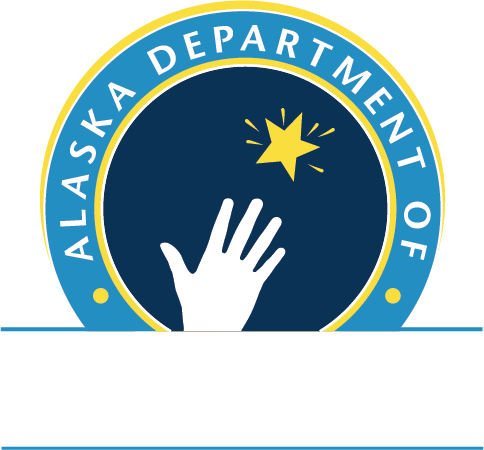Teaching Early Literacy Remotely
How do you teach a K-3 student to read remotely? Join the experts from REL Northwest to learn about implementing evidence-based early literacy practices in a remote learning environment, including engagement and support practices for early learners. There will be two separate opportunities within this series: one for primary instructors, and another for staff and caregivers who support early literacy.
Optional UAA credit available. Contact Amy Jo Meiners at amyjom@serrc.org for course credit registration information.

Sessions for Primary Instructors
Intended Audience: PK-3 Teachers
Starts January 11th, Mondays from 3:45 - 5:15 PM
Sessions for Staff and Caregivers
Intended Audience: Those supporting early literacy instruction, especially paraeducators, parents, caregivers, tutors and after-school program staff.
Starts February 17th, Wednesdays from 10:00 - 11:30 AM
Teaching Early Literacy Remotely — Sessions for Primary Instructors
Mondays from 3:45 - 5:15PM
Jan. 11 - Increasing Instructional Intensity [recording | slides]
When students struggle, our first instinct is to slow down, when in fact we need to accelerate their learning if we are ever going to close the achievement gap. Increasing the instructional intensity (active engagement, distributive practice, and strategic intervention) is what they need most. This session will discuss the theory behind accelerating learning as well as demonstrate strategies for both face-to-face and virtual learning to increase the instructional intensity and the impact of our teaching.
Jan. 25 - Developing Vocabulary [recording | slides]
Good readers have deep pockets of word knowledge. “All that I know is what I have words for.” And yet many of our students’ vocabulary knowledge is limited. This session will provide a brief overview of the research on vocabulary development and provide specific instructional strategies for developing both oral and print vocabulary.
Feb. 1 - Orthographic Mapping [recording | slides]
Orthographic mapping is defined as “the process of forming letter-sound connections in order to combine and recall the spelling, pronunciation, and the meaning of words.” In other words, it means understanding the relationship between sounds (phonemes), letters (or graphemes), and morphemes (the smallest units of meaning). While it sounds very technical, we are teaching it every time we introduce a new spelling word. This session will provide evidence-based practices to increase our students’ ability to spell, and extend that knowledge to build their vocabularies.
Feb. 8 - Foundational Skills to Support Reading for Understanding Part 1 [recording | slides]
The research on effective distance learning for young readers is in the early stages. However, we do have a body of evidence that identifies the critical elements of early literacy. The challenge for teachers is how to ensure that regardless of the format, face-to-face or virtual, students are receiving a strong start. This session will be based on Foundational Skills to Support Reading for Understanding, a practice guide from the Institute of Education Sciences. Marybeth Flahcbart will provide a summary of updates included in the 2019 revision to the IES practice guide and review/share strategies to build oral language, print awareness, phonological awareness and decoding in both face-to-face and virtual environments. It will also be an opportunity for participants to share promising practices with one another as they practice what they learn in the training.
Feb. 22 - Foundational Skills to Support Reading for Understanding Part 2 [recording | slides]
An extension from the Feb. 8 session, participants will continue to share best practices for teaching foundational early literacy skills as they learn more about the body of evidence currently available.
Mar. 1 - Catch Them Before They Fall [recording | slides | bonus sound spelling recording ]
Participants will be trained to identify specific areas of reading difficulty by building their understanding of a comprehensive assessment system (screener, diagnostic, progressive monitoring, and outcome) and key indicators of risk (low language/low decoding). Using a framework (language comprehension + decoding = comprehension, created by Gough and Tunmer (1986) participants will be trained to look at the underlying causes of reading difficulty. The facilitator will also discuss assessment tools and how those assessment domains are connected to decoding and language comprehension. In addition, participants will use learning from the training to brainstorm solutions to identify key reading milestones using other indicators such as the Dynamic Indicators of Basic Early Literacy, aimsweb, iReady or Imagination Station (Istation) Reading.
Teaching Early Literacy Remotely — Sessions for Staff and Caregivers
Wednesdays from 10:00 - 11:30 AM
Each module will be 1.5 hours and emphasize strategies for supporting struggling readers in small group sessions.
Feb. 17 - Teaching Early Literacy [recording | slides]
This session will provide an overview and some strategies for approaching the “Big Five” of reading instruction: Phonological Awareness, Phonics, Fluency, Vocabulary and Comprehension.
Mar. 3 - Foundational Skills: Phonemic Awareness [recording | slides]
Learn strategies to effectively teach early literacy skills, including building letter recognition and phonological awareness.
Mar. 17 - Foundational Skills: Phonics [recording | slides]
Learn strategies for teaching phonics and orthographic mapping (spelling) to struggling readers
Mar. 31 - Foundational Skills: Fluency [recording | slides]
Learn strategies for building fluency at the letter, word, sentence, and passage level
April 7 - Teaching Literacy for English Learners [recording | slides]
How can you better support English Language Learners? Learn strategies and walk away with more ideas for ELL supports.
April 14 - Teaching Early Literacy to Support Reading for Understanding [recording | slides]
Learn strategies for teaching vocabulary and comprehension.


 Marybeth Flachbart, Ed.D., provides technical assistance to schools, districts, and states to build capacity for literacy and school improvement. Marybeth provided support to State Education Agencies through the Northwest Comprehensive Center. She has worked with educators in Alaska, California, Colorado, Idaho, Montana, Oklahoma, Oregon, and Texas. Marybeth served as president and chief executive officer of Neuhaus Education Center in Houston, Texas, a non-profit think tank for literacy solutions. She served as Deputy Superintendent of Student Achievement and School Improvement at the Idaho State Department of Education, taught at Boise State University, and directed Idaho’s Reading First Program. Previously, she taught in the Houston Independent and Deer Park Independent School Districts, where her classroom experience included ten years of both general and
Marybeth Flachbart, Ed.D., provides technical assistance to schools, districts, and states to build capacity for literacy and school improvement. Marybeth provided support to State Education Agencies through the Northwest Comprehensive Center. She has worked with educators in Alaska, California, Colorado, Idaho, Montana, Oklahoma, Oregon, and Texas. Marybeth served as president and chief executive officer of Neuhaus Education Center in Houston, Texas, a non-profit think tank for literacy solutions. She served as Deputy Superintendent of Student Achievement and School Improvement at the Idaho State Department of Education, taught at Boise State University, and directed Idaho’s Reading First Program. Previously, she taught in the Houston Independent and Deer Park Independent School Districts, where her classroom experience included ten years of both general and